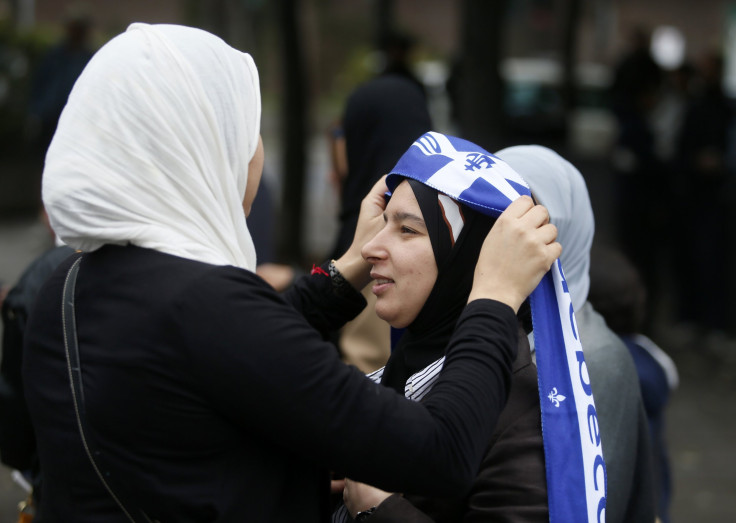Muslims In Canada: Quebec To Ban Burqas? Hijab Could Be A Security Issue, Officials Say

A burqa ban in Québec is necessary for the sake of identification, communication and security at public services, such as naturalization ceremonies, Justice Minister Stephanie Vallée, of the Québec Liberal Party, said in a press conference Tuesday. Vallée's comments come amid a regional parliament debate over women’s ability to express their religious beliefs and culture in the Canadian city.
The officials were arguing over the merits of a Québec Assembly bill, tabled by liberals in June 2015, that would ban women from wearing the face- and body-covering veils — also known as hijabs and worn by Muslim women — during public ceremonies.
The Assembly didn’t intend to target a specific clothing article or religion, and insisted on the religious neutrality of Québec law, Vallée added.
But, in a separate press conference Tuesday, Rep. Nathalie Roy of the center-right Coalition Avenir Québec argued that Québec’s position on religious neutrality and secularism weren’t even outlined in the law.
“The word ‘secularism’ doesn’t even appear in this bill,” Roy said. “We speak of religious neutrality, and I invite you all to look at the effective definition. There is no definition.”
Roy also noted gaping holes in the law rendering it essentially useless: “Currently, with law 62 as it is written, police officers could wear the veil, students could wear the chador,” she said, describing a long cloak worn by many women in Iran.
Legislators planned to add to law 62 certain accommodations for religious needs, but those accommodations had not yet been outlined after the first day of debates.
Interest groups also joined the Assembly arguments, with a board member of the Québec English School Boards Association (QESBA) urging the representatives not to push forward the unnecessary bill.
“We don’t need it,” said Stephen Burke of the QESBA, according to the Montreal Gazette. “We can complicate everything in life … but we’re nine school boards, 340 schools, 100,000 students — it’s not a lot. We don’t have time to fight.”
Members of the group Pour les droits des femmes du Québec (For the rights of women of Québec) also voiced their disagreement.
“We’ve taken out crucifixes in classrooms because they influenced children, and children didn’t even look at them,” the group’s president, Michè le Sirois said, according to the Gazette. “Now teachers who wear religious symbols are transmitting their values and beliefs to children. What will the teacher who wears a veil say to children who ask, ‘Why are you wearing that?’ She’ll say, ‘Because it’s my god, my husband, my son or my imam’? To answer the question sends out a message; to not answer also sends out a message.”
France, which has the largest Muslim minority in Western Europe, became the first European country to ban burqas in public spaces in 2007. Ten other nations in Europe have since followed suit with similar legislation.
© Copyright IBTimes 2024. All rights reserved.












